
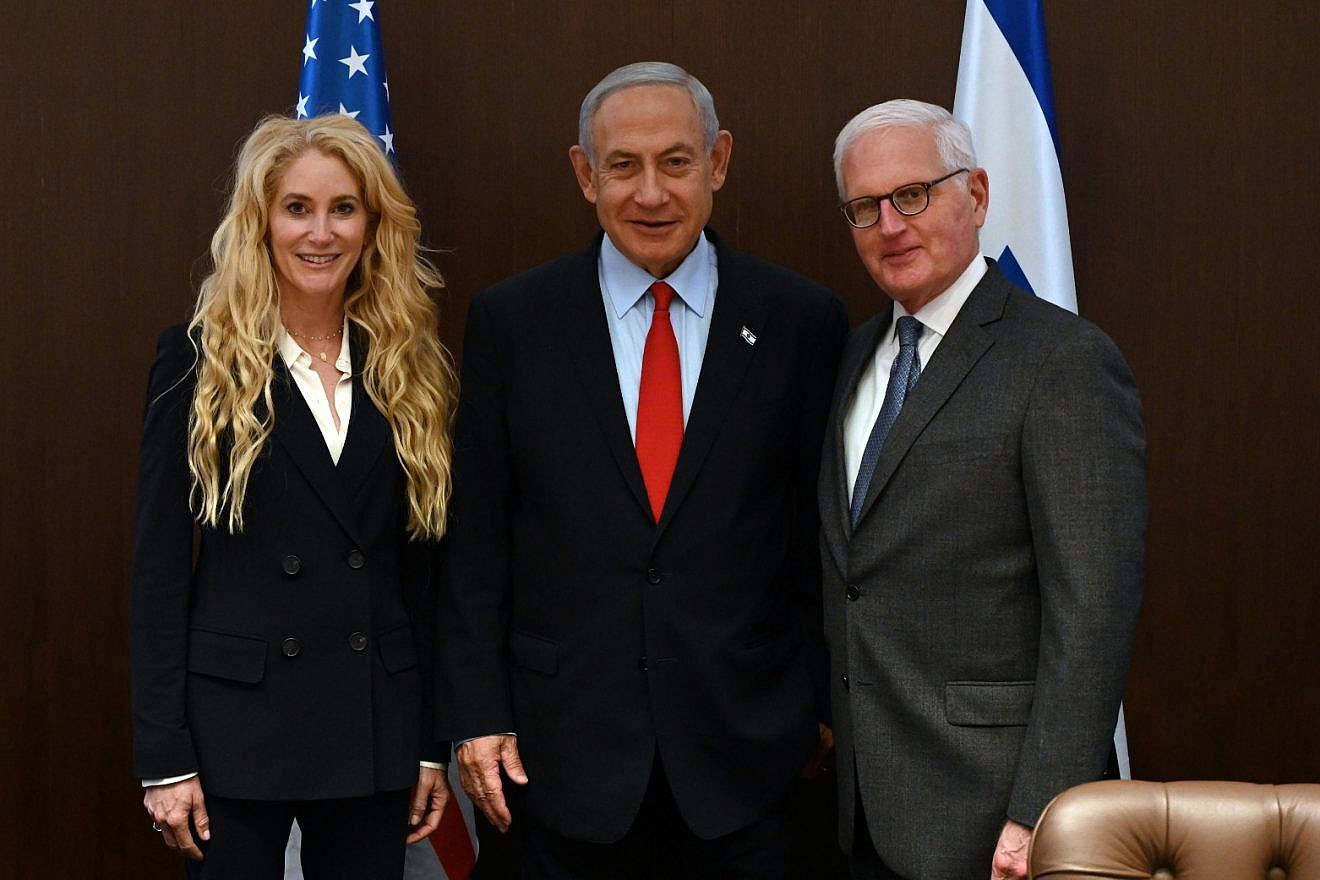
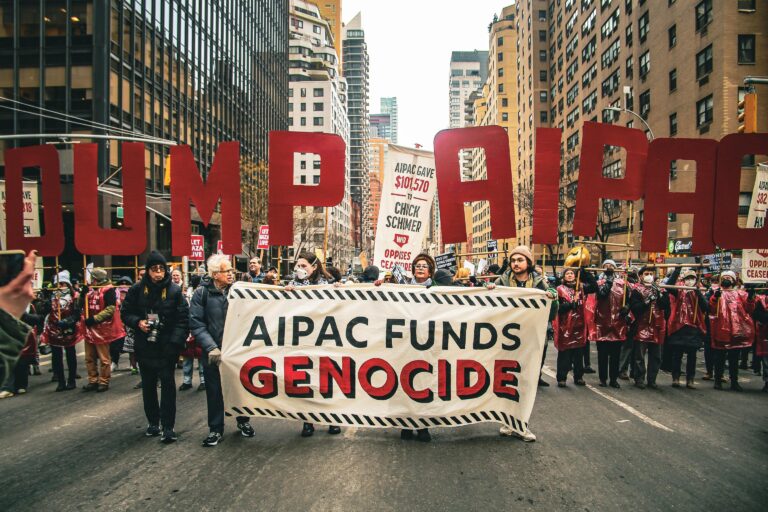
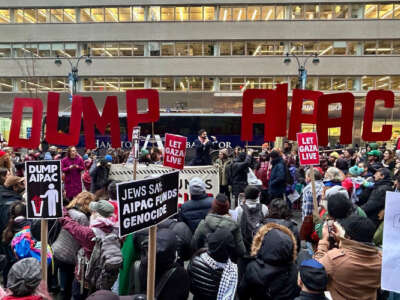
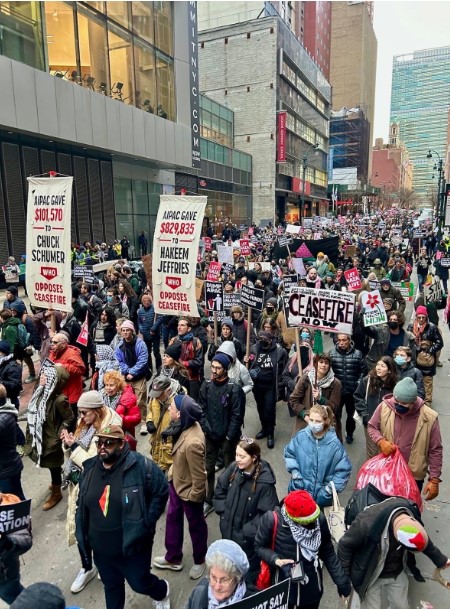
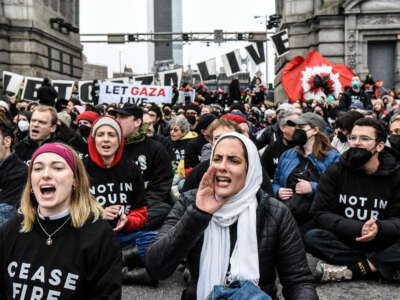

The Role of AIPAC in the Context of Zionism and U.S. Foreign Policy
The American Israel Public Affairs Committee (AIPAC) is a prominent lobbying group that plays a significant role in shaping U.S. foreign policy towards Israel. Formed in 1951, AIPAC’s stated mission is to strengthen the relationship between the United States and Israel, but it has been a focal point of debate regarding its ties to the Zionist movement and its implications for American taxpayers and international relations.
AIPAC and the Zionist Lobby
AIPAC is often described as part of the broader Zionist lobby in the United States, a coalition of organizations and individuals that advocate for policies perceived to support the interests of Israel. Critics argue that AIPAC’s efforts contribute to maintaining and justifying what they see as the illegal occupation of Palestinian territories. This occupation is characterized by numerous human rights violations and has sparked significant conflict in the region.
Supporters of AIPAC argue that its influence is essential for a strong U.S.-Israel relationship, promoting shared democratic values and strategic interests. However, detractors claim that AIPAC represents a narrow set of interests that do not necessarily align with broader American or global humanitarian values. This perception is compounded by allegations that AIPAC manipulates political discourse to sidestep accountability for actions taken by the Israeli state, particularly in relation to its treatment of Palestinians.
The Ethics of Funding and Occupation
One of the most contentious issues surrounding AIPAC is the funding derived from American taxpayers to support Israel, including military aid that critics argue facilitates the occupation. This financial support is often justified through the lens of national security and shared values, yet it raises questions about accountability and morality. Critics argue that U.S. taxpayers should not be complicit in funding actions they perceive as unjust or illegal, particularly when these actions have dire humanitarian consequences.
The consequences of Israel’s military operations and occupation policies extend beyond the immediate region, contributing to broader instability in the Middle East and beyond. Many argue that such policies have fueled extremism and anti-American sentiment, undermining U.S. interests globally. Furthermore, the narrative that these actions disproportionately benefit a select socio-economic class within Israel raises concerns about equity and justice, challenging the moral high ground often claimed by both AIPAC and its allies.
The Militarization of Youth and Society
Another aspect of the debate surrounding AIPAC and its support for Israeli policies is the militarization of society. The conscription of youth into military service in Israel is often portrayed as a rite of passage, yet it raises ethical questions about the experiences and roles these young individuals are forced into. Critics argue that involving youth in military operations for the sake of sustaining an occupation can desensitize them to violence and human rights abuses, perpetuating a cycle of conflict and suffering.
Moreover, the argument that military and political strategies serve primarily the interests of capitalism and the elite is a potent critique that resonates with many global justice advocates. The focus on resource acquisition and economic gain often overlooks the fundamental rights of individuals affected by these policies, positioning all individuals—both in Israel and the occupied territories—as potential victims of a larger geopolitical struggle.
A Broader Context of Colonialism
This manipulation in the context of AIPAC and its alignment with Zionism cannot be viewed in isolation. It reflects a troubling and inhumane face of colonization that is not unique to the Israeli-Palestinian conflict but emblematic of colonial practices worldwide. From the Americas to Africa, the legacy of colonialism is marked by the dispossession of indigenous peoples and the exploitation of resources for the benefit of a privileged few. The tactics used to justify and maintain these structures of oppression, including political lobbying and economic manipulation, must be recognized as part of a global pattern that demands urgent attention and action.
Ending the cycle of manipulation and exploitation is critical for fostering a just world where human rights are respected, and dignity is afforded to all. This requires acknowledging and addressing the historical injustices that have shaped current geopolitical frameworks.
Conclusion: A Call for Accountability
The role of AIPAC in the context of U.S. foreign policy and its support for Zionism highlights the complex interplay between lobbying, morality, and international relations. The organization must confront growing calls for accountability regarding its influence on policies that impact millions, both in the Middle East and around the world. As discussions about justice, human rights, and the ethical implications of foreign aid continue to evolve, understanding the multifaceted nature of lobbying groups like AIPAC will be crucial for addressing the challenges that remain in the quest for peace and justice in the region.
A collective movement to end all forms of colonization and manipulation is essential. It requires a critical examination of the implications of lobbying and political influence, coupled with a commitment to ensuring that all human beings are treated with dignity and respect, irrespective of their nationality or socio-economic status. To create a just future, the world must unite in confronting these injustices, recognizing that the liberation of one is intertwined with the liberation of all.
AIPAC’s roots
AIPAC (American Israel Public Affairs Committee) primarily represents American interests in relation to Israel, and its leadership largely consists of individuals who are American citizens. However, the organization itself attracts a diverse membership that may include individuals from various backgrounds. Here are a few key points regarding the nationalities associated with AIPAC:
- American: The majority of AIPAC’s leadership and members are American citizens. They come from various ethnic and cultural backgrounds, including Jewish Americans, who form a significant portion of the organization’s support base.
- Israeli: While AIPAC is an American lobbying organization, it works closely with Israeli officials and representatives to advocate for U.S. policies that support Israel. Some members or advisors may have ties to Israel or dual nationality.
- Jewish Diaspora: AIPAC also engages with members of the Jewish diaspora from other countries, as it represents interests related to Israel and Jewish communities globally.
- Allies: AIPAC has allies and supporters from diverse backgrounds who may not necessarily be Jewish but support the U.S.-Israel relationship.
It’s important to note that while AIPAC’s leadership is predominantly American, the organization aims to build connections and foster dialogue between Americans and Israelis, often bringing in voices and perspectives from both communities. For specific details about the nationalities of individuals within AIPAC, accessing official biographical information or publications directly from their website would be the best approach.
AIPAC’s official executive team and board members are
- David A. Harris – Former Executive Director.
- Howard Kohr – Long-time Executive Director (as of late 2021).
- Morton Klein – Former National President of the Zionist Organization of America and a frequent commentator on AIPAC’s activities.
- Stephen Greenberg – Former National Chairman.
